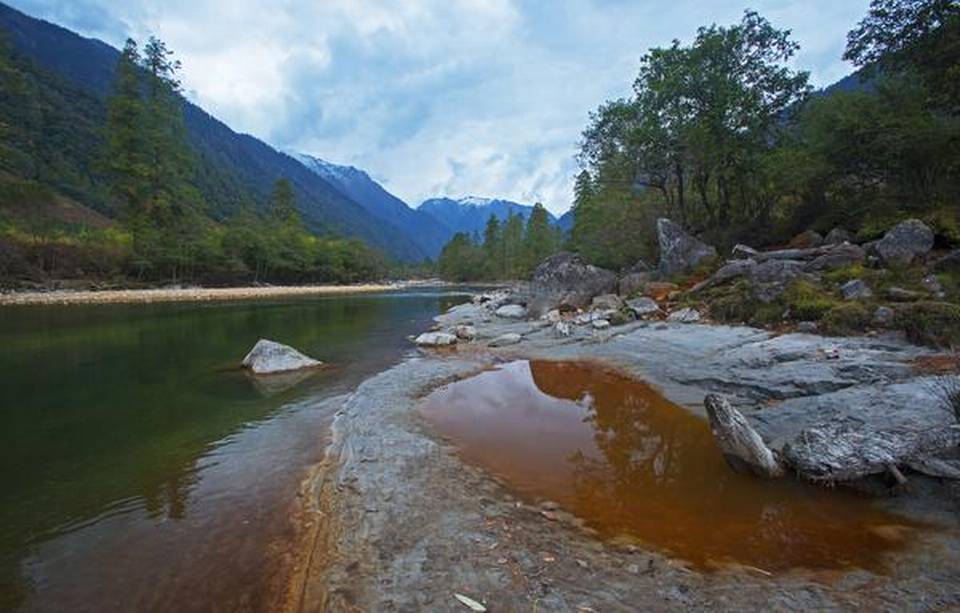The Hindu
05/06/2020
Greens divided over coal project in Assam, lawyers’ collective want Arunachal hydro project scrapped
A conservation foundation has pushed for “rural futures” on World Environment Day as green groups appeared divided on the issue of coal mining near a rainforest reserve in Assam while an indigenous lawyers’ collective called for scrapping a mega-dam project in Arunachal Pradesh.
The Assam-based Balipara Foundation said the way to go forward in the Eastern Himalayas was synergising nature conservation and development with a focus on upward socio-economic mobility through habitat restoration and other ecosystem services in forest-fringe communities.
“This is the concept behind rural futures, which is essentially the idea that human needs for incomes and economic growth need not be incompatible with biodiversity needs for habitat,” said the foundation’s Joanna Dawson.
Currently underway
A rural futures project is currently underway in the villages around the Khalingduar Reserve Forest in north-central Assam’s Udalguri district. The foundation aims at replicating and upscaling this model across the Indo-Bhutan trans-boundary conservation landscape and further across the Eastern Himalayas.
“The Environment Ministry’s move to green-light the Dehing Patkai mining project is at odds with this forward-looking approach. It is a step backwards for the country and suggests poor inter-departmental alignment on India’s aspirations as a global leader in renewables,” Ms. Dawson told The Hindu.
The Ministry’s National Board of Wildlife (NBWL) had in April recommended open case coal mining in a portion of 98.59 hectares of a proposed reserve forest near the 111 sq. km. Dehing Patkai Wildlife Sanctuary.
“India’s draft National Forest Policy 2018 explicitly declares 33% of the country must be forest area for eco-security… If India has to meet its forest goals and agreements, it must double its rate of forest expansion — not tear down old-growth forests like Dehing Patkai that are immeasurably valuable as carbon sinks,” the foundation’s Sourav Malhotra said.
“Dehing Patkai’s forest will sequester approximately over 67,000 tonnes of carbon annually. Its biodiversity value is immeasurable. Together with the forest’s ecosystems services, these constitute its natural capital, a value which could amount to nearly ₹8 billion at a conservative estimate. This invisible economic value must be assessed and incorporated in all decision-making,” he added.
For and against
University students, musicians and local environmental groups have called for an end to illegal coal mining to save Dehing Patkai. While they launched a series of online and offline campaigns, some lawyers and activists have filed at least two public interest litigations at the Gauhati High Court.
However, a green group called Nature’s Beckon has denied any mining activities in the wildlife sanctuary. “Some groups are misleading people to be in circulation. We fought for conservation of Dehing Patkai after which it was declared a wildlife sanctuary in 2004. It would have been lost to coal mining without our efforts,” said its founder-president Soumyadeep Dutta.
The North Eastern Coalfields (NEC), a unit of Coal India Limited, said the public sector undertaking needed to be saved first to save the wildlife sanctuary. “If NEC is closed because of false propaganda, illegal mining will increase in the region and destroy the entire wildlife sanctuary,” said its General Manager Jugal Kumar Borah.
Dibang Valley project
Meanwhile, the Indigenous Lawyers’ Association of India has asked the Centre and the Arunachal Pradesh government to scrap the 3,097 MW Etalin hydroelectric project in Dibang Valley district. The project is feared to divert 1,150.08 hectares of land, fell 2.7 lakh trees and destroy the culture and heritage of local indigenous communities, particularly the Idu Mishmis.
“At a time when the destruction of nature has been blamed for upheavals in the world, including pandemic, and green energy is being increasingly promoted, the construction of outdated hydroelectric projects by destroying the nature must be abandoned,” said Dilip Chakma, the association’s coordinator.




